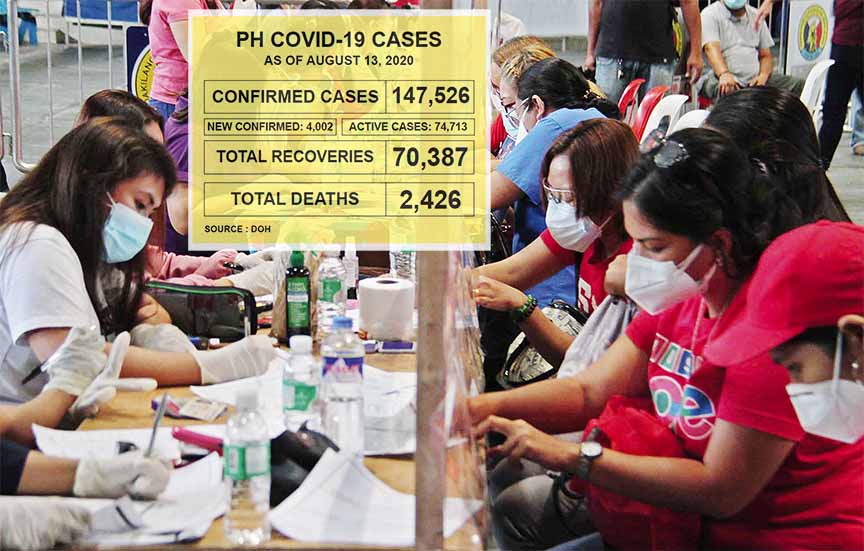THE Philippine Health Insurance Corporation (PhilHealth) yesterday announced the suspension of the interim reimbursement mechanism (IRM), its cash advance system aimed at helping hospitals handle an overflow of patients with the coronavirus disease (COVID-19).
The controversial IRM, based on Senate investigations and House investigations into anomalies at the PhilHealth, is being used by a corruption mafia at the state insurer to drain the agency of billions in funds.
PhilHealth, in a statement, said the IRM is being suspended because the agency will “review its overall implementation and resolve issues arising from congressional inquiries.”
While the program is suspended, PhilHealth said it will determine how it can better help medical facilities in times of crisis.
“PhilHealth vowed to find ways to make the IRM more responsive to the needs of healthcare facilities affected by the current pandemic to assure patients of continuous access to needed health services,” said PhilHealth.
To recall, the IRM is used by PhilHealth as part of its efforts to assist hospitals during the COVID-19 pandemic by providing them the liquidity to respond better.
The IRM was also utilized during the typhoon “Yolanda” in November 2013, the “Marawi siege” in May 2017, and the Taal Volcano eruption, among other calamities.
But recently, the IRM is suspected as being used by officials as a tool for corruption. Some senators have pushed for the temporary suspension of the IRM until the reforms are adopted.
Sen. Panfilo Lacson said a glaring proof of the existence of a “mafia” inside PhilHealth is when executive committee (execom) “demanded” the resignation of Augustus de Villa as executive vice president for operations due to loss of confidence.
“Ang isang at least indication na may mafia, ang testimony ni Gen. Augustus de Villa,” Lacson told radio dzBB
Lacson was referring to De Villa’s admission that he was forced to resign as EVP for operations after PhilHealth president and CEO Ricardo Morales talked told him the execom no longer trusts him.
The execom is composed of several PhilHealth senior vice presidents.
Lacson said it started when the execom had a bull session last week after the hearing of the House of Representatives on the PhilHealth issues. After the meeting, Morales called De Villa to inform him that “wala nang tiwala sa iyo ang execom (the execom does not trust you anymore)” and that de Villa has to tender his resignation.
Lacson said it was very peculiar that De Villa had to have the execom’s trust, when it is supposed to be the PhilHealth president who has to lose confidence in any company official to force a resignation.
“Bakit nawalan ng tiwala ang kapwa SVP eh pinagre-resign? Anong indication noon? Sino ang powerful? Ibig sabihin ang execom mas powerful pa sila sa president and chief executive officer. Eh dapat under niya lahat yan eh
(Why did the other SVPs lose their confidence on a colleague that merits his resignation?
What does this indicate? Who is more powerful? That means that the execom is more powerful that the president and CEO when it should be that the president and CEO who should be above them),” Lacson said.
De Villa joined PhilHealth in September last year right after retiring from the Armed Forces, and became the corporation’s officer-in-charge executive vice president until he was appointed as SVP for operations.
De Villa tendered his irrevocable resignation on August 6 but did not state the reason. He only said he has talked with Morales.
De Villa, however, told Senate President Vicente Sotto III the real reason for his resignation is that he was urged to resign by Morales after the execom lost its trust and confidence in him.
Lacson said unmasking who are behind the PhilHealth “mafia” is important to finally stop the anomalies in the corporation, as he said that changing the PhilHealth head will not eliminate corruption within since the “mafia” is so powerful that it can dictate what it wants.
Morales is subject of resignation calls. He has cancer and is now on medical leave.
Presidential spokesman Harry Roque said no officer-in-charge has been named to PhilHealth.
He also said no meeting has been set between President Duterte and Morales but the President is always open to those who want to talk to him.
Duterte last week created a task force headed by the Department of Justice to investigate PhilHealth and its officials. It was given 30 days to complete and submit its recommendations. — With Raymond Africa Jocelyn Montemayor





